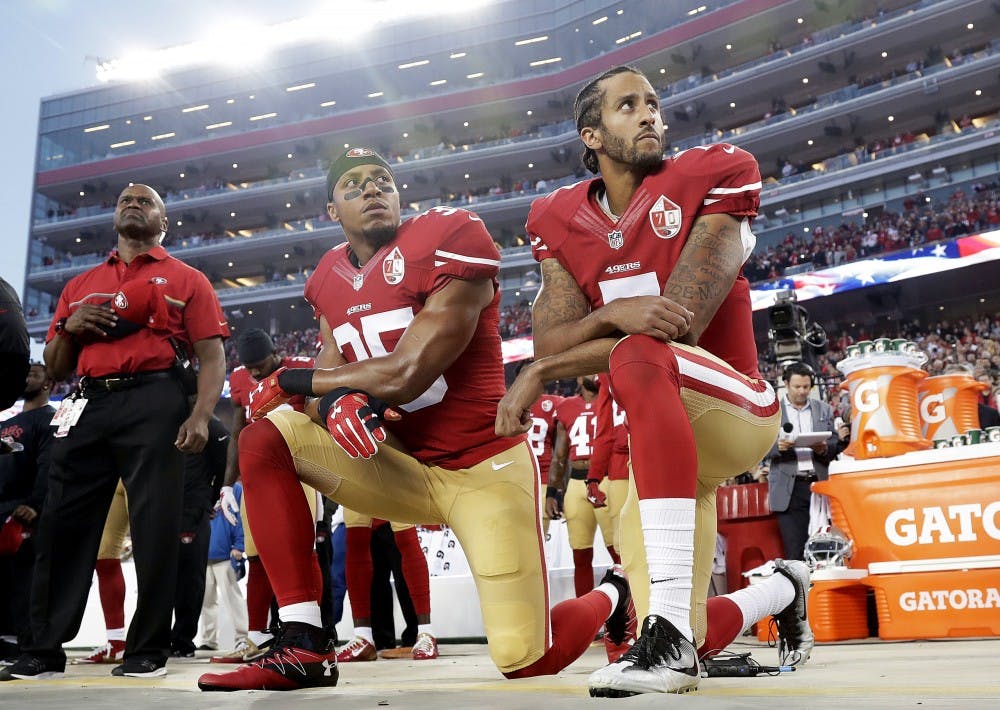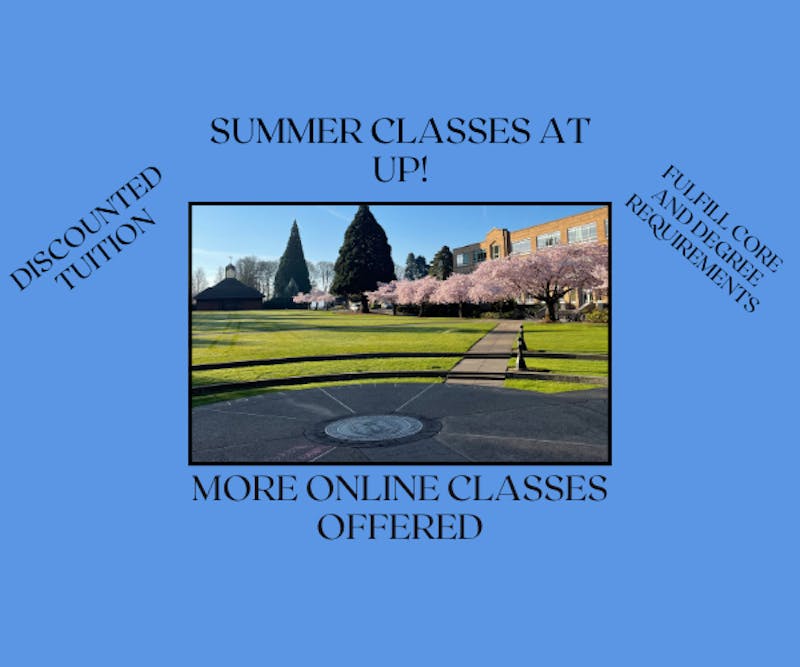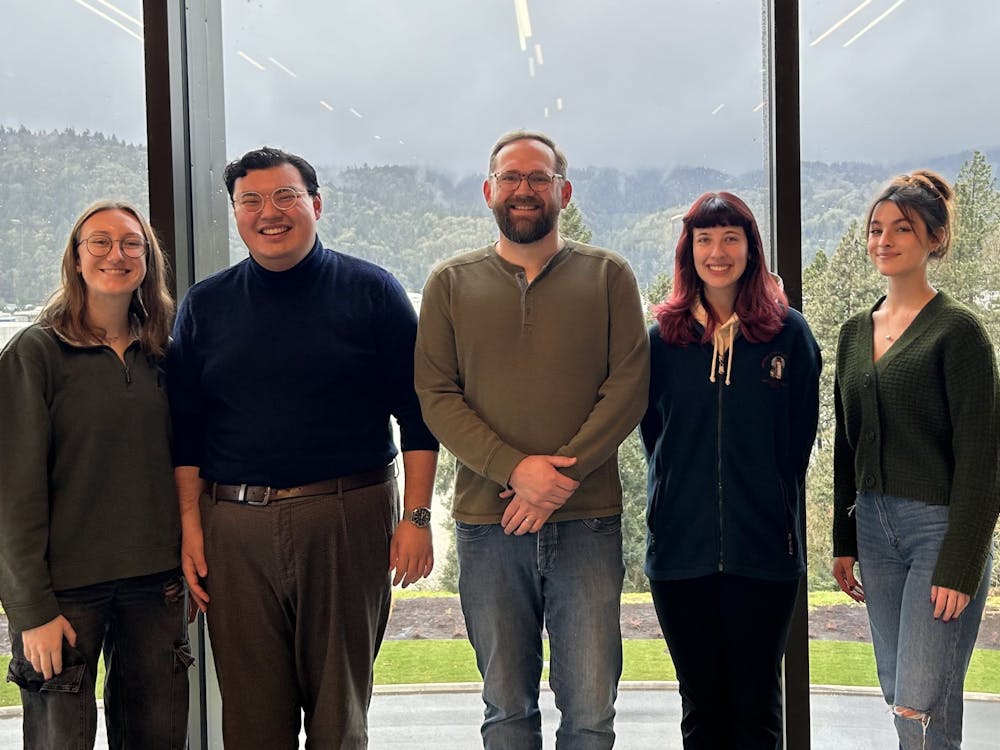Colin Kaepernick has made headlines by refusing to stand during the National Anthem during San Francisco 49ers football games. His actions have prompted athletes in the National Football League and beyond to join in peaceful protest of racial inequality by kneeling during the National Anthem or raising their fists in the black power symbol.
The Beacon not only supports the rights of these athletes to protest; we support their cause. At a predominantly white university where racial equality has been a hot-button issue, The Beacon editorial board wants to voice our solidarity Kaepernick.
An article from The Guardian reported that 188 of 761 people who were killed by police in the U.S. in 2016 were black. And according to the New York Times, black people make up just 12 percent of the United States population but account for 30 percent of the deaths from police brutality.
While racial injustices have been more subtle on The Bluff and students may feel apprehensive about Kaepernick’s method of protest, we feel that being patriotic and supporting basic human rights are not mutually exclusive.
Following his initial protest, Kaepernick stated, “I am not going to stand up to show pride in a flag for a country that oppresses black people and people of color. To me, this is bigger than football and it would be selfish on my part to look the other way.”
In the riotous wake of Michael Brown’s murder in Ferguson, Missouri, critics of the #BlackLivesMatter movement shamed the violence and discord, and suggested more peaceful methods of social change. Kaepernick’s protest has been peaceful but he has still received an overwhelming amount of criticism from people all over the country.
The Twittersphere exploded with debates about whether or not what Kaepernick has sparked is un-American, suggesting that neglecting to stand during the National Anthem shows disrespect to veterans and United States military personnel. But having respect for our veterans and affirming the value of black lives can be one in the same.
Because what is less patriotic than violence against innocent Americans? The U.S. military’s charge is to fight for the protection of innocent Americans.
The delivery of this protest is not most important. We encourage you to see past it. Embrace what Kaepernick stands for: prioritization of racial equality in the United States.
Kaepernick's protest is not the first of its kind.
In fact, his protest is bolstered by the foundation built by black athletes of the past whose social activism has cemented their role in American history. This protest will land him in the history books, with his name next to athletes like Jackie Robinson, the first black baseball player in Major League Baseball whose nonviolent activism made him integral in the Civil Rights Movement, and Tommie Smith and John Carlos whose displays of the black power salute at the 1986 Olympic games resulted in them being stripped of their medals but again drew attention to the movement.
The equal treatment of black Americans does not have to result in hatred for the police. Supporting one cause or group does not necessarily mean being against the other.
But a country that normalizes the unwarranted murder of black people is not the land of the free and home of the brave that we sing about.
America can do better, and we can, too. The University of Portland can embrace and foster a community in which everyone has a place, and in which black lives matter.









